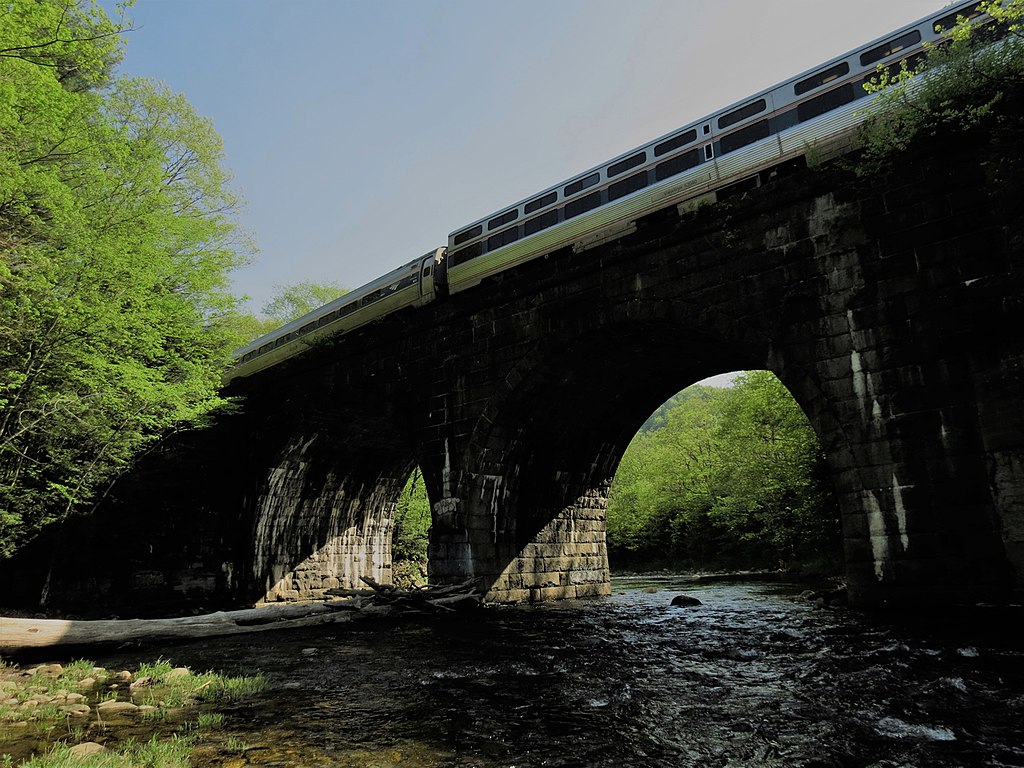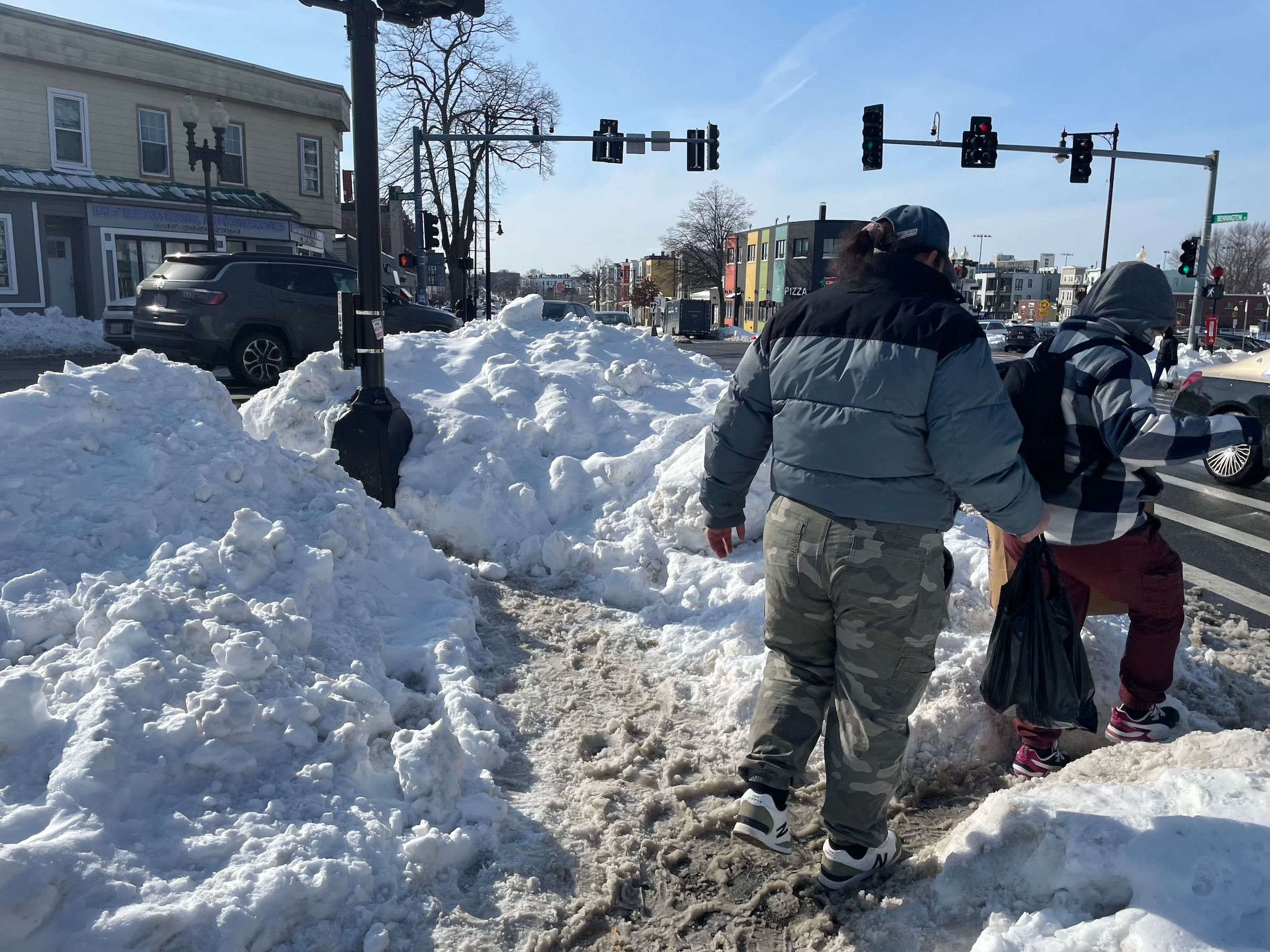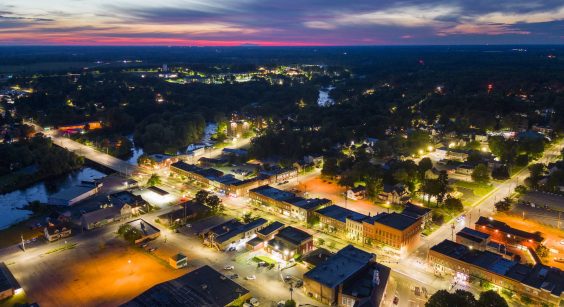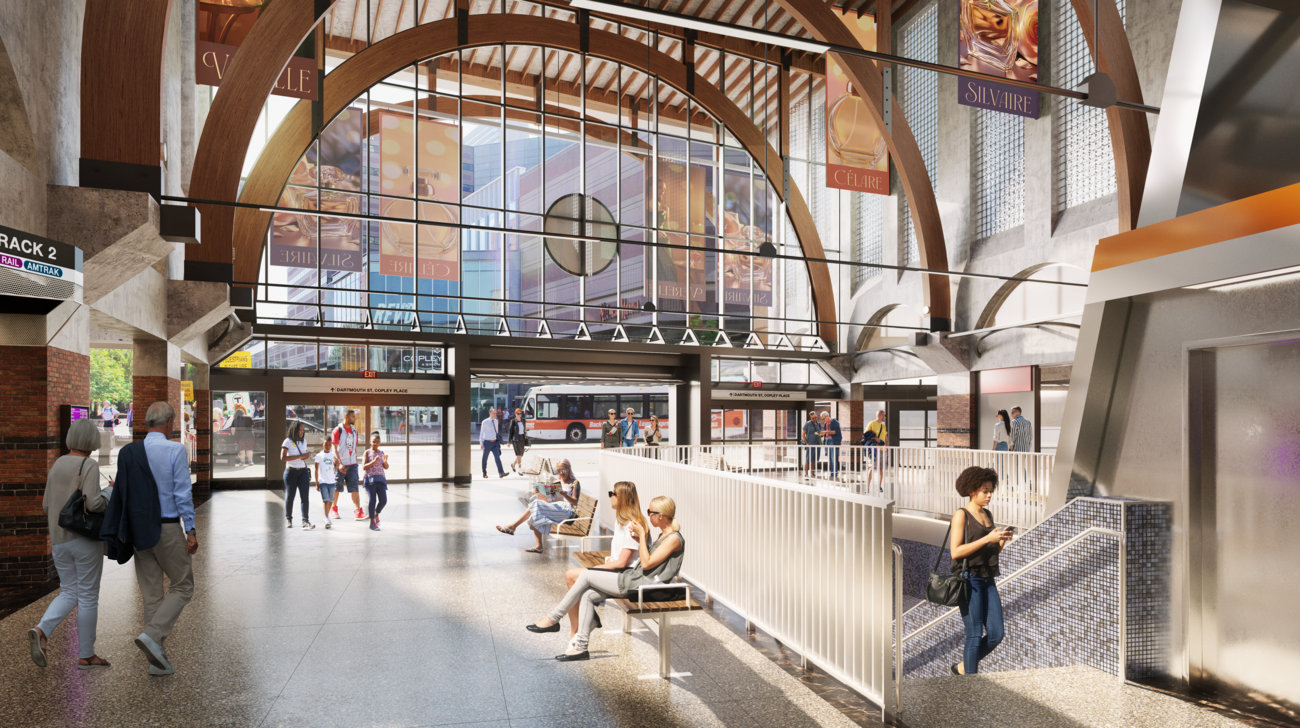Advocates are expressing significant skepticism over high cost estimates and low ridership projections being promoted by the MassDOT in the latest stage of its delayed East-West Passenger Rail Study.
In estimates published Thursday on the MassDOT blog, the state asserts that modest upgrades to the state's primary east-west railway to enable up to six daily round-trip passenger trains between Boston and Springfield would cost $2.1 billion and attract only 158 daily riders between the state's three largest cities – Boston, Worcester, and Springfield.
A more ambitious "alternative 4," which would build new rails within the existing freight railroad's right-of-way to allow for passenger train speeds up to 110 mph, was estimated to cost $4.1 billion and generate only 387 daily boardings, according to MassDOT.
Ben Heckscher, a co-founder of the Trains In The Valley, a Pioneer Valley rail transit advocacy group, notes that those estimates disagree with prior studies, and don't come anywhere close to the actual costs and ridership of similar rail projects in the region.
"We’re trying to do some analysis about how they arrived at these numbers, but we have a detailed, 1400-page study from 2016 that came to much different conclusion. This new study shows much lower ridership and much higher cost," said Heckscher.
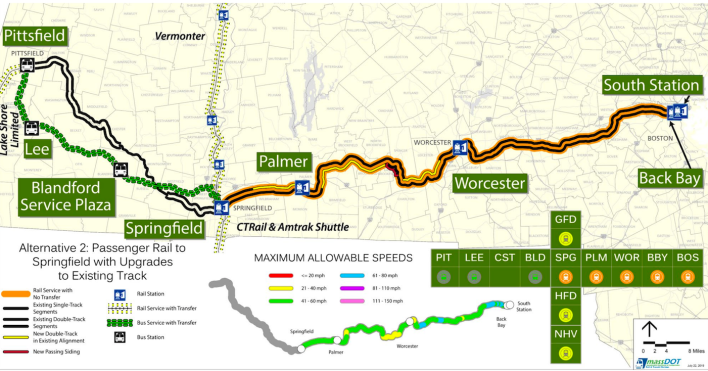
That 2016 study, the "Northern New England Intercity Rail Initiative" (NNEIRI), recommended similar double-tracking and signal upgrades to the rail line from Springfield and Worcester to enable eight daily round trips between Boston, Springfield, and New Haven.
Though the total route was longer, the NNEIRI project was estimated to cost between $589 and $702 million in inflation-adjusted 2020 dollars – less than half as much as the current study's estimated costs for Springfield-to-Boston service.
Heckscher also points out that the state of Connecticut recently undertook similar track and signal upgrades to its tracks between Springfield and New Haven – a 62 mile route – in a project that cost only $768 million in the mid-2010s.
Connecticut's Hartford Line project built new tracks and signals along the length of the Connecticut River valley to support train speeds up to 110 mph and 16 round-trips per day.
The new Hartford Line service opened in 2018 and it attracted 2,000 daily boardings on weekdays in its first year of operation – more than five times as many riders as MassDOT is projecting in the comparable higher-speed "alternative 4" option for 110 mph service between Springfield and Boston.
The Amtrak Downeaster, which runs 5 round-trips daily between Boston and Brunswick, Maine, also serves as a potential base of comparison for ridership estimates on a new east-west passenger rail service.
The Portland-Brunswick metropolitan area is less populous than greater Springfield and the Pioneer Valley, and farther from Boston, but the Downeaster still attracts an average of 1,500 daily trips — about 10 times more than MassDOT's projected ridership for 6 daily trips between Springfield and Boston.
MassDOT will present its estimates in a public hearing for the East-West Passenger Rail Study scheduled for next Wednesday in Springfield (details below). StreetsblogMASS has reached out to MassDOT to inquire about its cost and ridership estimates.
MassDOT East-West Passenger Rail Study public hearing
When: Wed. February 12, 2020, 6–8 PM
Where: UMass Center at Springfield, 1500 Main Street
